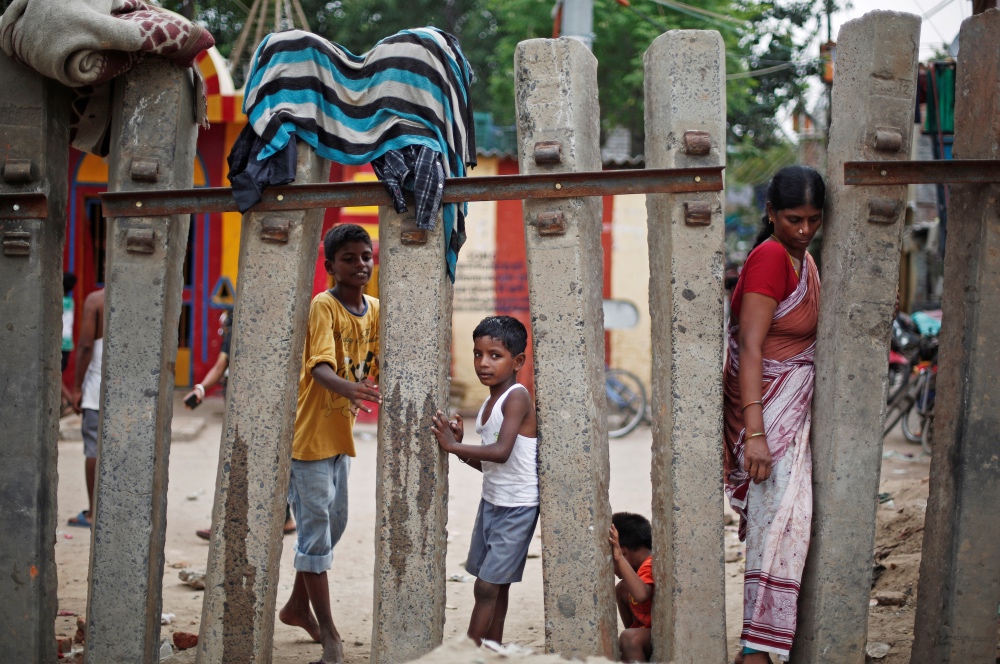New Delhi, India
Thomson Reuters Foundation
India said on Thursday it had ushered in “a wave of change” for millions of slum dwellers – offering them the prize of home ownership – but it barred thousands more whose slums sit near temples, beauty spots and rich neighbourhoods.
It is landmark move for more than four million people in the cramped capital of over 18 million, enshrining for the first time their right to own the shacks and dwellings they call home.

Children play as a woman crosses a railway fence at a slum area in New Delhi, India, on 11th July, 2018. PICTURE: Reuters/Adnan Abidi
The plan to regularise Delhi’s unauthorised settlements had been floated for more than a decade. Now it is finally law, opening the door to better services and security for millions of migrant workers living in hundreds of ramshackle settlements.
“Citizens did not live in unauthorised colonies of Delhi because they wanted to. They lived in urban squalor because they had no choice,” tweeted Housing Minister Hardeep Singh Puri on Thursday.
“[The bill] will bring a wave of change.”
Parliament passed the bill on Wednesday.
However it excludes nearly 70 slums in protected areas, such as forests, or near monuments, flood plains and rich enclaves, said Rajeev Kumar Jain, a spokesman for the housing ministry.
“A few thousands of people will be left out. But it’s a small number. The vast majority are being covered,” he said.
Worldwide, about a billion people live in slums and informal settlements. By 2030, three billion people will lack access to adequate and affordable housing, according to UN-Habitat, the United Nations’ settlements agency.
The bill seeks to stem that tide, giving more than four million residents of about 1,700 settlements in Delhi the right to own, develop and sell their property and to take out loans.
Authorities have built roads and drains in some settlements, but many lack basic facilities and residents face the constant threat of eviction, according to housing rights activists.
Many are migrant workers from other parts of India who cannot afford regular housing, drawn to the cities for jobs and the promise of a better life.
They are among the 65 million Indians who live in slums, according to the national 2011 census, with numbers expected to reach nearly 600 million by 2030 as cities continue to boom.
Under the new bill, residents will have to provide basic documentation and pay a nominal charge to register their property and receive a title.
Shivani Chaudhry, executive director of the Housing and Land Rights Network, welcomed the bill but worried it might not guard against all evictions, given all the hurdles to be jumped.
The registration process must be an inclusive one that does not exclude people on account of faulty surveys, minor technicalities, or their inability to pay or provide documentation, she said.





